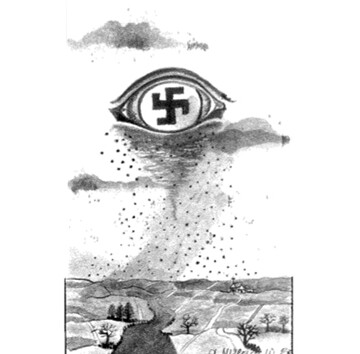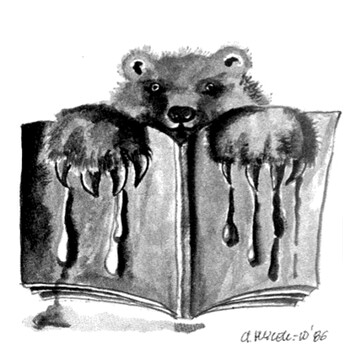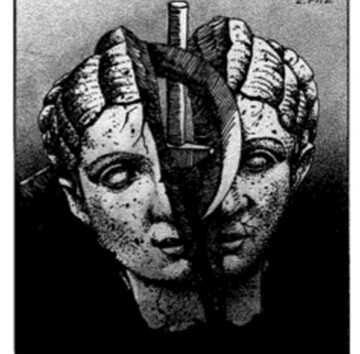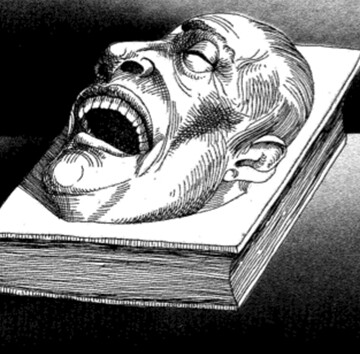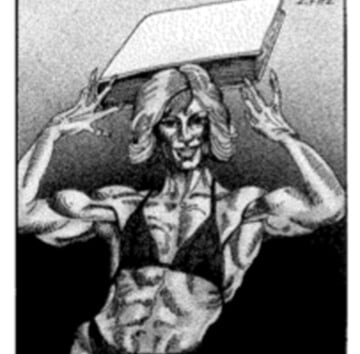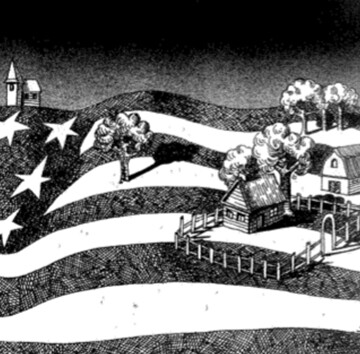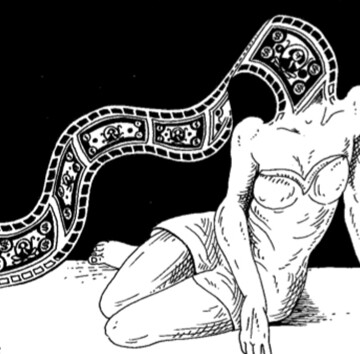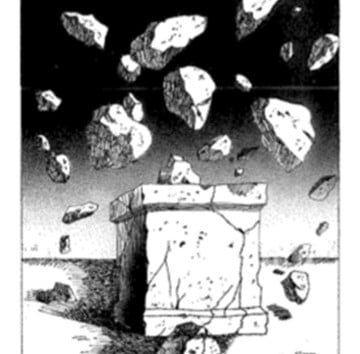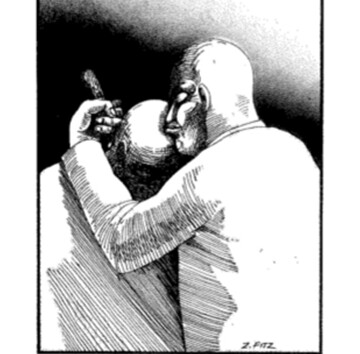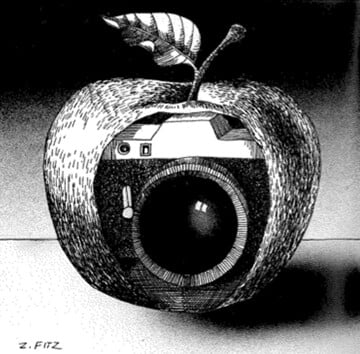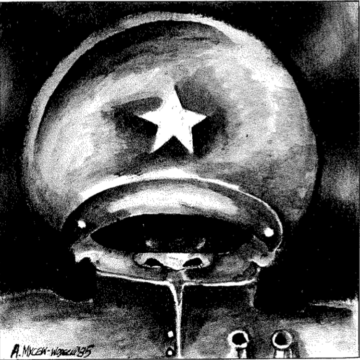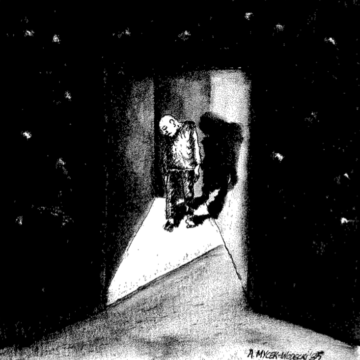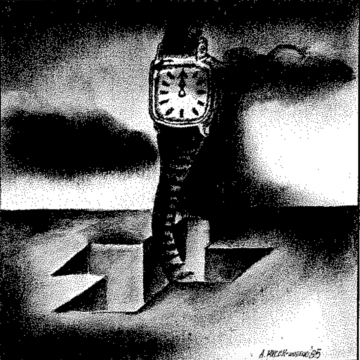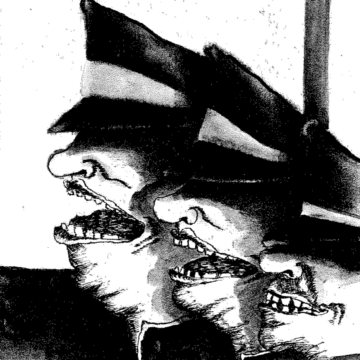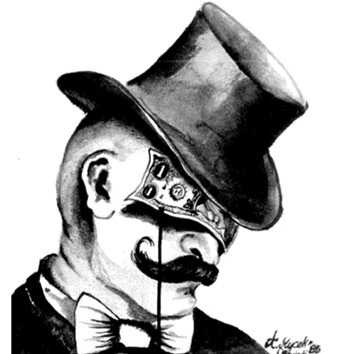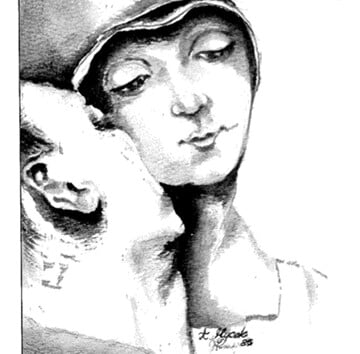“Guns will make us powerful; butter will only make us fat.” —Hermann Goering It is 40 years now since the Allies claimed victory over Germany and survivors on both sides made the first groping attempts to uncover the meaning of Nazism. Yet despite the availability of almost inexhaustible sources and the persistence of armies-of scholars,...
Category: Reviews
Aloha, Captain Cook
The relationship between culture and history, structure and event is one of those questions to which every school of social science has an answer. Marshall Sahlins belongs to that vanishing species: the historically minded anthropologist. Like his mentor, Leslie White, and his colleague, Elman Service, Sahlins has dedicated much of his career to discovering the...
The Bear and His Claws
“The wisdom of all these latter times, in princes’ affairs, is rather fine deliveries, and shiftings of dangers and mischiefs when they are near, than solid and grounded courses to keep them aloof.” —Sir Francis Bacon No matter where the finger roams on the map, the question inevitably arises: What are the Russians trying to...
The Flawed Tragedian
“He has learned speech and windy thought and the political temperament.” —Sophocles’ Antigone Among literary intellectuals, George Steiner holds a place of unmistakable influence. His essays on philosophy and literature can be found in the New York Review of Books, London Times Literary Supplement, and in other publications associated with making it in the world...
Zeus, Whoever He Is
Walter Burkert may be the world’s leading authority on the religion of the ancient Greeks. Like several predecessors in the field—notably Friedrich Nietzsche and Walter Otto—Burkert writes almost as an enthusiast. In a series of important works, he has paid the Greeks the very high courtesy of taking them seriously. Burkert is a sort of...
Crumpets and Crotchets
The reader knows from the outset of Miss Read’s 30th anachronistic novel of village gossip that the “affairs” at Thrush Green are not of the illicit variety. This latest amble into the not-so-lively lives of the middle-aged people last encountered in Read’s Gossip Prom Thrush Green (1981) presents a world dominated by old-fashioned simplicity and...
A Saint Seduced
Rarely has any important figure in the history of Christianity been as ignorant of theology as Martin Niemöller. Even his friend and political ally Karl Earth commented on the fact. It was Niemöller’s single-minded courage and patriotism that made him important. In the Great War he was a U-boat commander. Disgusted with what he viewed...
Faith and Freud in the Bayou
A comic religious novel, North Gladiola treats the same region of southeast Louisiana and some of the same characters that James Wilcox introduced to his readers in his first novel, Modern Baptists (Doubleday, 1983). The protagonist of the first novel, bumbling Mr. Pickens, plays a minor role in the second, as do meddling Donna Lee...
The Truest Polyartist
It need hardly be said again that Laszlo Moholy-Nagy was one of Modernism’s primary figures, whose art, writing, and life remain for many a continuing inspiration. He was a polyartist, a true polyartist, who made consequential contributions to the traditions of several nonadjacent arts—painting, book design, artistic machinery, and photography—amidst lesser achievements in film, theater...
Defending the High Frontier
For some time now, many have accepted the logic of nuclear defense. The strategic and moral superiority of a system that relies on killing weapons instead of people seems—on the face of it—undeniable. By suggesting we build such a defense. President Reagan altered the nuclear calculus in which our civilian population is currently held hostage...
The Atonement of Poetry
“Aye, those fair living forms swam heavenly / To tunes forgotten. . . . “ —John Keats One of life’s great joys is to come across a new work of literature that is likely to last far beyond any early assessment of its value. In the case of poetry, which chiefly concerns us here, it...
Reconstructing the Bostonians
Reconstructing the Bostonians A popular film that is more than chewing gum for the mind is a rare treat, and a novel of power and poignancy, translated into a well-created film, is sheer bliss. The Bostonians is a love story about an archaic Southern man who falls in love with a beautiful feminist preacher who...
Babbitt and More in the Eighties
“Every artist is a moralist, though he need not preach.” —George Santayana Accepting the Nobel Prize for Literature on December 12, 1930, Sinclair Lewis used the occasion to attack academic traditionalists, who, he said, “like their literature clear and cold and pure and very dead.” And among that group he singled out the New Humanists,...
A Hero for Our Times?
Lord Louis Mountbatten died in 1979, a victim of IRA assassins. Since then, no fewer than three biographies on the man have appeared (if one includes The Life and Times of Lord Mountbatten, the book on Mountbatten’s self-orchestrated television documentary, shown in this country as Mountbatten: A Man for the Century). The latest, by Philip...
Worldly Wise & Heavenly Foolish
The most widely known of these three novelists is Romain Gary, who committed suicide in 1980 at the age of 66, perhaps as a result of his disastrous marriage to the American actress and radical, Jean Seaberg, who had taken her own life a year earlier. A Lithuanian emigrant to France, where he played a...
A Voice From Down South
“Had he been even a Yankee, this genius would have been rendered immediately manifest to his countrymen.” —Edgar Allan Poe “All a rhetorician’s rules,” we learn from Hudibras, “teach him but to name his tools.” Professor Bradford, who knows much about the art of rhetoric, is a massive exception to this observation. This is a...
Red-White-and-Blue Yiddishkeit
“It is much the point of Judaism that efforts to waken the consciences of others should not prevent Jews from reexamining their own.” So writes Stephen Whitfield, a professor of American studies at Brandeis, in this new study of 20th-century American Jewry. The means Jews have frequently used to arouse and examine the conscience have...
Money and Mammon
Christian moral thinking has always had to harmonize with New Testament texts such as “the love of money is the root of all evils,” and “blessed are the poor.” At the same time. Christian morality is incompatible with the kind of spirituality that decries the material world and all that pertains to it as either...
Gatsby Without Clothes
“O money, money! . . . Thou art the test of beauty, the judge of ornament, the guide of fancy, the index of temper, and the pole star of the affections.” —Daniel Defoe It is an odd thing for someone who has written an approving book on Peter DeVries and who also has testified in...
Socialism Sanctified
Dale Vree begins his book by recounting the experiences in the radical 60’s that led him to leave Berkeley and sample life in the “worker’s paradise” of East Berlin. Such a decision makes Vree seem admirable: at least he did not begin by demanding radical changes in American society and end by indulging in radical...
The Costs of Culture
“The choice of a point of view is the initial act of culture.” —Ortega y Gasset Because I have spoken sharply to the general question of Federal support for arts and letters, and because my name is connected with certain facets of the public business, I receive through the mails a mass of publications designed...
Erratic Entrepreneurs
Writers of worthwhile biographies must not only research their facts carefully, they must also highlight the moral, imaginative, or philosophic significance of their subjects’ lives. Both James Grant’s Bernard Baruch and Stanley Jackson’s J.P. Morgan are well researched and clearly written, but both fail to tell us why we should care about either of these...
So Long, St. George
This collection, announces Franz Rottensteiner in his introduction, gives us none of the traditional “high” fantasy of heroic quests in imaginary lands, filled with magic and sorcery and pitting good against evil. Such fantasy, Rottensteiner argues, can provide little insight into modern society or the human mind because it is rooted in past worlds divorced...
More Than Monkey Business
Human beings are alternately ashamed and amused by the spectacle of their closest connections on the scala naturae. Behavior that we find unremarkable in dogs and cats—sexual promiscuity or self-abuse—seems grotesque in chimpanzees and baboons. Looking at apes and monkeys in the zoo is a little too much like looking at ourselves in a fun-house...
Between Auschwitz and Armageddon
“Your fathers, where are they? and the prophets, do they live for ever?” —Zechariah Most nations know all too clearly what they believe about Jews. Americans are less sure. This beneficial uncertainty inheres in the two major traditions that shape American souls: Christianity and modern political philosophy. Peter Grose writes that the Puritans “identified with...
Laborious Hedonism
In America, speaking out against work was once like saying nasty things about motherhood. Even now that attacks on motherhood have become common. Perry Pascarella makes it clear in The New Achievers that work is still sacred to the yuppie mentality. No longer, however, is work the spiritual exercise it was in Calvinism; restraining the...
Wet Cement
Iain Banks’s first novel invites comparison with the work of Ian McEwan. During the mid-1970’s, McEwan began to establish himself as one of Britain’s most successful writers of fiction. First Love, Last Rites—his first collection of short stories—sold unusually well and won the prestigious Somerset Maugham Award. The Cement Garden, his first novel, was widely...
Worms in the Big Apple
The title of this book is misleading. Karen Gerard’s subject is one city. New York, and the “scenes” she discusses are random sketches of New York’s political, economic, and cultural life. Gerard, former deputy mayor of New York under Edward Koch, writes like a politician: her style is largely anecdotal, and the book meanders tourist-like...
Brezhnev and Beyond
Perhaps it is inevitable that the new Soviet leader Mikhail Gorbachev and his wife Raisa (already dubbed the “Bo Derek of the Steppes” in a British press report) will come to the United States. If Secretary Gorbachev does visit, the journalists and commentators who report the visit should be required to read The Brezhnev Politburo...
Life, Interpreted Lucely
” . . . where the pictures for the page atone.” —Alexander Pope No contemporary could write promotion copy quite like Henry Luce. His 1936 prospectus for a new magazine featuring photographs, tentatively called The Show-Book of the World, still has few equals: To see life; to see the world; to eyewitness great events; to...
The American “Collective” (Day)Dream
“Some races increase, others are reduced, and in a short while the generations of living creatures are changed and like runners relay the torch of life.” —Lucretius Reading student applications for scholarships, as I have done on and off now for a dozen years on the undergraduate scholarships committee of the University of California, Davis,...
The “News: From Moscow
The analysis of dezinformatsia here provided by Richard Shultz and Roy Godson is overloaded with scholarly paraphernalia, ranging from statistical tables of Soviet “overt propaganda themes” to an erratic glossary containing a pompous and unnecessary definition of “forgery” (“Forgery, one of many disinformation techniques, is the use of authentic-looking but false documents and communiques”). Because...
A Vibrant Voice
Voice, it is called: that quality of certain poets’ accumulated poems which stamps their singular metrics or syntax or vocabulary onto our personal sound system. Voice makes us unconsciously imitate the music of a good poet we’ve been studying. Voice lets us recognize the author without peeking at the cover. Now, it’s true that every...
Dead Cows and Mangled Translations
Fyodor Abramov was awarded the State Prize of the U.S.S.R. in 1975 for his trilogy of life on a rural commune, The Pryaslins, of which Two Winters and Three Summers is the second volume. “Begin at the beginning, go on to the end, then stop,” was the King’s advice to Alice, but Harcourt Brace Jovanovich...
Marxism and Its Guardian
“Long promise and short observance is the road that leads to the sure triumph.” – Dante Inequality under socialism—or under putative socialism—remains largely unknown and barely under stood in the West even by the educated public. If by now the political practices of countries insisting on being called socialist (sometimes even democratic) are better grasped,...
They Were the World
Most people are unconcerned about the plight of the very poor because they have their hands quite full enough providing for the health and safety of their own families. But then there are “the fashionably concerned,” those who are very concerned that they appear concerned about the poor. One thinks of certain entertainment personalities, religious...
Marxism & Motorcycle Maintenance
“The revolutionary loves a man who does not yet exist.’’ – Albert Camus In recent years, critics of culture have given the imagination a one way ticket to the left. The Liberal Imagination by Lionel Trilling is followed by The Radical Imagination by Irving Howe, which is followed in turn by The Sociological Imagination of...
The Mystery of Arthur Koestler
“It is notgood to look too long upon these turning wheels of vicissitude, lest we become giddy.” –Sir Francis Bacon It was apt that 1984, the Orwellian Year, should see the reissue of Arthur Koestler’s two-volume autobiog raphy (first published some three dec ades ago) and that the year should also see the...
Passage Back from India
Identifying the patterns of life, tracking the process of modern thought and action, requires an author who knows a big idea from a little one, a tall order in a day of moral relativism and cultural confusion. Ruth Prawer Jhabvala appears to be such a writer. She is German born, of Polish-Jewish descent, British educated,...
The Cult of Personality
The life of Roland Barthes will never be serialized on Masterpiece Theater. Born in 1915, he contracted pulmonary tuberculosis as a young man (1934), and spent part of his life in sanatoriums. Barthes’s education was conventional enough: he received a license in the classics from the Sorbonne, participated in the foundation of the Groupe de Théatre...
Time and the Cross
“[They] assemble before daylight and recite by turns a form of words to Christ as god. I discovered nothing else than a perverse and extravagant superstition.” –Pliny the Younger The New Testament is not a book. In common with the Old Testament, to which it can in some ways be regarded as an appendix, like the Apocrypha,...
Stray Nuts & Bolts
Using the backdrop of a small Southern town slowly awakening to the cultural and social rumblings of the mid and late 20th century, Jayne Anne Phillips is attempting in this novel to weave the lives, dreams, and remembrances of the Hampson clan of Bellington, West Virginia, into a mythic mosaic of the sort found in...
Samizdat Philistine
The philistine is alive and well in Soviet Russia—and, like his brethren the world over, he is writing novels. It is a mistake to assume that under the conditions of totalitarianism, culture naturally separates, like oil and vinegar, into two discrete layers: the official, government layer and the subterranean, clandestine one. Instead, rather like the...
Behind the Pogonias
In 1922 The Literary Digest asked selected American poets and novelists to name “the most important” living American writer: Joseph Hergesheimer finished first and Eugene O’Neill Second; Sherwood Anderson edged out Willa Cather for third. For fifth place James Branch Cabell tied Robert Frost, who first gained wide attention in 1915 with the American publication...
A Survivor…So Far
“When another blames or hates you, or when men say injurious things about you, approach their poor souls . . . and see what kind of men they are.” – Marcus Aurelius In 1944 Viktor Kravchenko defected from the Soviet Union and wrote a now obscure book, I Chose Freedom, published in 1946. “I was to...
Reagan’s Rhetoric
It may well be indicative of real progress in America that we are now able to read the Presidential speeches of a man that leading commentators frequently declared unelectable a decade ago. But now that Ronald Reagan’s electability is established beyond doubt, the national media have been busy tagging him as the “most ideological” of...
Economist in the Pulpit
“Dosn’t thou ‘ear my ‘erses legs, as they canters awaay Proputty, pioputty, proputty—that’s what I ‘ears ’em saay.” —Alfred Tennyson George Stigler won the Nobel Prize for Economics in 1982, the second member of the Chicago School to win that award in less than a decade (the other being Milton Friedman in 1976). These prizes...
Looking for Love in All the Wrong Places
Love is everywhere the theme of popular culture, but only rarely a subject for serious contemporary philosophy. Irving Singer, professor of philosophy at MIT, attempts to remedy this imbalance with these two volumes, the first two parts of a trilogy. Laudable in breadth and clarity, his work nonetheless reveals only too well why most modern...
Threepenny Marxist
The Marxist and the artist view human existence in fundamentally different ways. Marxism regards human existence as absolutely knowable because scientific laws govern history and because materialism underlies all of existence. It is not so simple for the artist. Although the artist may study history, he knows that nature is not a closed circle within...
Boredom, Sex, and Murder
” . . . knew every quirk within lust’s labyrinth and were professed critic in lechery.” —Ben Jonson Cracks are appearing in the idol of high culture fabricated by the Victorians. Matthew Arnold eloquently expressed the vision of the educated person who joins moral commitment with breadth of vision and transcends the narrowness of religion...
